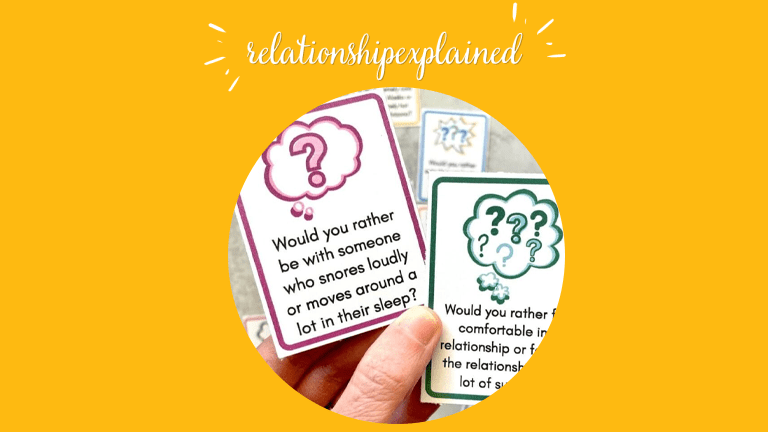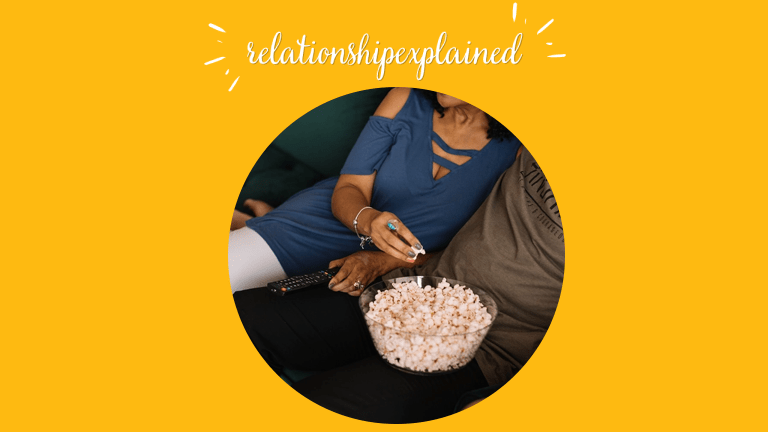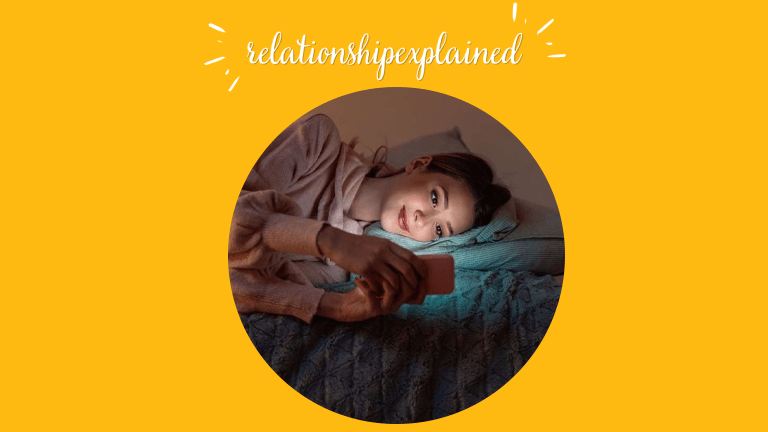We Are Not Each Other's Soulmate, And That's Okay
Embracing the journey of a relationship without the conventional expectation of finding a "soulmate" can be liberating and deeply fulfilling. The idea that we must find our perfect other half to complete us is a romanticized notion that doesn't necessarily hold true in the complexity of real relationships. Instead, understanding that it's okay not to […]
Embracing the journey of a relationship without the conventional expectation of finding a "soulmate" can be liberating and deeply fulfilling.
The idea that we must find our perfect other half to complete us is a romanticized notion that doesn't necessarily hold true in the complexity of real relationships. Instead, understanding that it's okay not to be each other's soulmates opens the door to cultivating a relationship based on mutual respect, growth, and genuine connection.
Well, we'll be going over:
- How can shifting the focus from finding a "soulmate" to building a strong partnership impact the dynamics of a relationship?
- What role does personal growth play in enhancing a relationship where both partners acknowledge they aren't soulmates?
- How can couples navigate conflicts and challenges more effectively by embracing the idea that they aren't each other's soulmates?
Let's dive in.
Understanding Soulmates and Connections
The concept of soulmates is often romanticized in movies and books, but what does it really mean? While some people believe that there is only one perfect person out there for them, others see soulmates as people who share a deep connection and understanding. Regardless of your beliefs, it's important to remember that relationships take work and that no one is perfect.
The Role of Personal Growth in Relationships
Personal growth is an essential part of any healthy relationship. When you and your partner are committed to personal growth, you can work together to overcome challenges and build a stronger bond. It's important to remember that personal growth is a lifelong journey, and that it's okay to make mistakes along the way.
Navigating Conflicts and Low Points
No relationship is perfect, and conflicts are bound to arise. When you and your partner are not each other's soulmates, it's important to approach conflicts with an open mind and a willingness to compromise. Remember that disagreements are an opportunity to learn more about each other and to grow together as a couple.
Key Takeaways
- Being soulmates is not a requirement for a healthy and fulfilling relationship.
- Personal growth is essential for building a strong and lasting bond with your partner.
- Navigating conflicts with an open mind and a willingness to compromise can help strengthen your relationship.
Understanding Soulmates and Connections
When it comes to relationships, the concept of soulmates is often romanticized. The idea that there is one perfect person out there for you, who you are destined to be with, can be comforting. However, this notion can also be limiting and unrealistic. In reality, the idea of soulmates is not as simple as finding "the one" and living happily ever after.
The Myth of 'The One'
The idea of soulmates often leads people to believe that there is only one person out there who is perfect for them. This can create a lot of pressure and anxiety, as people feel like they need to find their soulmate or they will be alone forever. However, the truth is that there is no such thing as "the one." There are many people out there who could be compatible with you, and it's up to you to find someone who you connect with on a deep level.
Types of Soulmates Beyond Romantic
Another misconception about soulmates is that they are always romantic partners. While it's true that some people do find their soulmate in a romantic partner, there are many other types of soulmates as well. For example, a soulmate could be a close friend, a family member, or even a pet. The important thing is that you have a deep connection with this person or animal, and you feel like they understand you on a level that no one else does.
When it comes to connections, it's important to remember that they can come in many different forms. While some connections may be romantic in nature, others may be platonic or even professional. The key is to find people who you connect with on a deep level, and who bring out the best in you.
In conclusion, the concept of soulmates can be both comforting and limiting. While it's important to find people who you connect with on a deep level, it's also important to remember that there is no such thing as "the one." Instead, focus on finding people who bring out the best in you, and who you can form deep connections with.
The Role of Personal Growth in Relationships
Relationships are an integral part of human life, and they play a significant role in shaping our personality and character. Personal growth is a vital aspect of any relationship, and it requires both independence and interdependence. In this section, we will explore the role of personal growth in relationships and how it can help you become a better version of yourself.
Independence and Interdependence
Personal growth in relationships requires a balance between independence and interdependence. You need to have the freedom to be yourself, pursue your interests, and achieve your goals. At the same time, you need to be able to work together with your partner, share your life, and create a meaningful relationship.
Independence allows you to develop your own identity, pursue your own interests, and have your own life, which is essential for personal growth. Interdependence, on the other hand, allows you to share your life with someone, learn from them, and grow together.
Learning and Transformation Through Relationships
Relationships can be a source of valuable lessons and transformation. When you are in a relationship, you learn more about yourself, your partner, and the world around you. You gain new perspectives, insights, and experiences that can help you grow and transform.
Personal growth requires a willingness to learn, change, and transform, and relationships provide an excellent opportunity for this. You can learn from your partner's strengths and weaknesses, their successes and failures, and their experiences and perspectives.
In conclusion, personal growth is a crucial aspect of any relationship, and it requires both independence and interdependence. Relationships can be a source of valuable lessons and transformation, and they provide an excellent opportunity for personal growth. By embracing personal growth, you can become a better version of yourself, and create a meaningful and fulfilling relationship.
Navigating Conflicts and Low Points
At some point in your marriage, you and your partner will experience conflicts and low points. These are normal occurrences in any relationship, and they can be overcome. The important thing is to have the right tools to navigate these challenges.
Communication as a Tool for Resolution
Communication is a crucial tool in resolving conflicts and low points in your marriage. It is essential to have open and honest communication with your partner. This means listening to each other's concerns and expressing your own in a respectful manner.
When communicating, it is important to avoid using accusatory language. Instead, use "I" statements to express how you feel. For example, instead of saying "You never listen to me," say "I feel like you don't hear me when I talk to you."
Active listening is also essential in communication. This means paying attention to what your partner is saying and trying to understand their perspective. Repeat what they say to ensure you understand correctly, and ask clarifying questions if needed.
Turning Pain into Progress
Low points in your marriage can be painful, but they can also be an opportunity for growth. Instead of dwelling on the pain, use it as a catalyst for progress. This means taking the time to reflect on what went wrong and what you can do differently in the future.
It is also important to take responsibility for your part in the conflict. This means acknowledging your mistakes and apologizing if necessary. This can help rebuild trust and strengthen your relationship.
In conclusion, conflicts and low points are a normal part of any marriage. The key is to have the right tools to navigate them. Communication and turning pain into progress are essential tools for resolving conflicts and strengthening your relationship. By using these tools, you can overcome any challenge that comes your way.
Cultivating a Lasting Bond
Building a lasting bond with someone takes time, effort, and commitment. While some people believe in the concept of soulmates, others do not. You may have heard the phrase "we are not each other's soulmates, but that's okay." This phrase reflects the idea that true love is not necessarily about finding your perfect match, but rather about building a strong and lasting connection with someone who shares your values and goals.
Building Security and Trust
One of the most important aspects of cultivating a lasting bond is building security and trust in your relationship. This means being honest with each other, communicating openly and effectively, and showing each other that you are committed to the relationship. When you feel secure in your relationship, you are more likely to be able to weather the ups and downs that come with any long-term commitment.
The Importance of Shared Values and Goals
Another key component of building a lasting bond is sharing common values and goals. This means having similar beliefs about what is important in life, what you want to achieve, and how you want to live your life. When you share these things with your partner, you are more likely to be able to work together towards your shared goals and create a life that you both find fulfilling.
Ultimately, building a lasting bond with someone is about more than just finding your soulmate. It is about building a strong foundation of trust, communication, and shared values that can withstand the test of time. By investing time and effort into your relationship, you can create a love that is real, deep, and lasting.
Redefining Relationship Success
Measuring Satisfaction Beyond Soulmates
In today's society, the concept of finding your soulmate has become a popular notion. Many believe that finding their soulmate is the ultimate goal of any romantic relationship. However, the reality is that not everyone finds their soulmate, and that's okay. Measuring relationship success solely based on finding your soulmate can be limiting and may not accurately reflect the satisfaction and happiness that you experience in your relationship.
Instead of limiting yourself to the idea of a soulmate, consider measuring relationship success based on other factors such as mutual respect, communication, and shared values. These factors can be more indicative of a satisfying and fulfilling relationship than the concept of a soulmate.
Embracing the Ebb and Flow of Relationships
Relationships are not static, and they ebb and flow throughout their duration. There will be times when things are going smoothly, and other times when you may encounter challenges. Embracing the ebb and flow of relationships can help you navigate these challenges and lead to a more fulfilling relationship.
It's important to remember that relationships require effort and choice. Choosing to work through challenges and communicate openly can help you and your partner grow closer and strengthen your relationship. Embracing the ebb and flow of relationships can also help you appreciate the good times and work through the tough times.
In conclusion, redefining relationship success beyond the concept of a soulmate can lead to a more fulfilling and satisfying relationship. Measuring satisfaction based on factors such as mutual respect, communication, and shared values can be more indicative of a successful relationship than solely focusing on finding your soulmate. Embracing the ebb and flow of relationships and choosing to work through challenges can also lead to a stronger and more fulfilling relationship.
Frequently Asked Questions
Is it possible to have a soulmate with whom you don't end up in a relationship?
Yes, it is possible to have a soulmate with whom you don't end up in a relationship. The concept of soulmates is not limited to romantic relationships. It can also refer to a deep spiritual connection with someone, such as a close friend or family member.
Can individuals be soulmates without ever crossing paths in life?
There is no consensus on whether individuals can be soulmates without ever crossing paths in life. Some people believe that soulmates are predestined to meet, while others believe that soulmates can be found in unexpected places.
Do soulmates necessarily end up in a lifelong partnership?
No, soulmates do not necessarily end up in a lifelong partnership. While some soulmates may end up in a romantic relationship, others may have a strong connection without being romantically involved.
What concept represents a bond more intense than that of twin flames?
The concept of twin flames represents a bond that is more intense than that of soulmates. Twin flames are believed to be two halves of the same soul and have a deep spiritual connection that transcends time and space.
How can you recognize a soulmate if you're not destined to be together?
Recognizing a soulmate can be difficult, especially if you're not destined to be together. Some signs that you may have met a soulmate include feeling an instant connection, having a deep understanding of each other, and feeling like you've known each other for a long time.
What are the implications of being in a loving relationship with someone who isn't your soulmate?
Being in a loving relationship with someone who isn't your soulmate can have both positive and negative implications. On the one hand, you may feel happy and fulfilled in the relationship. On the other hand, you may feel like something is missing or that the relationship is not as deep as it could be. It's important to remember that everyone's experience is different and there is no right or wrong way to feel.












